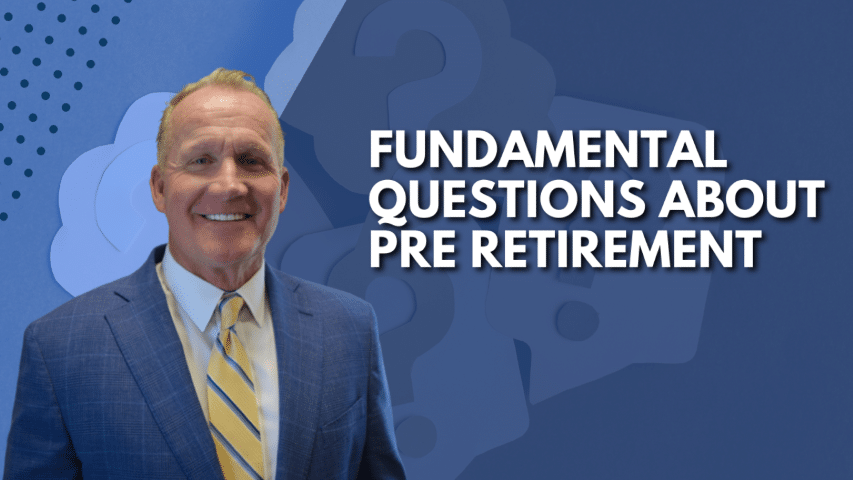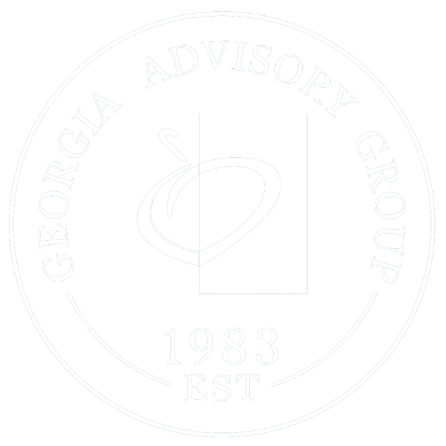Great tools for retirement income using my IRA or 401K.
I get asked a lot of questions about retirement planning, from investment to taxes, to Social Security, to 401K rollovers, to annuities. You can imagine the topic is so wide-ranging, but let’s nail down the most asked questions and what you should be focused on.
Hello again, Dave Duley here, a 40-year veteran of the financial markets and Lead advisor with Georgia Advisory Group. Stay tuned for this short video to pick up some great ideas heading into retirement. Now, don’t forget to subscribe below to keep posted on any upcoming information to help you get a better grasp on planning for the road ahead. First, take a deep breath.
This should be an exciting time for you and the family. Yes, I get it, and hear it every day. Am I ready and will I make it through retirement? Listen in, 40 years, I’ve never called one client and said, “Sorry, you run out of money,” so you won’t be the exception. So relax and let’s dive in. First is consolidation. To get a snapshot of where you’re at is important to get your accounts in order, meaning consolidating. A perfect picture would be each individual should have an IRA account, a Roth account, and an individual count. Now, if you have a spouse, then the last account would be joint, obviously. What I typically see is the opposite, accounts everywhere, checking savings, money market, old IRAs, two or three of them from previous companies over the years, CDs, kids’ College accounts.
So, what I’m saying, it just continues to go on and on, this would drive me nuts. One is all the trees we’re killing, and two, understanding, is my money working for me, and how do I even know what having this many accounts and am I maximizing my returns or worse, protecting my accounts for major swings in the markets? Assuming a husband and wife, I want to see a joint checking with about four to six months in expenses there in cash. Next, an IRA for each of you. Here’s where I combine my IRAs and 401k and 403b into one account. Yes, after 59 and a half, you should move as fast as you can to get your 401k or 403b to an in-service rollover for a lot of reasons, and 99% of the companies will allow you to do this. Third, you want a Roth IRA. Now, some of you may say, “Dave, I don’t qualify for Roth because of my income,” but you probably have that option through your employer, so you can roll it out also to your account after age 59 and a half.
Now, your main account is your joint-managed account. Now, what do I mean by that? This is your investment account, but treat it just like you would your savings, your money market, your checking, and investments all in one. It’s 2023 and not 1970. These accounts can do everything. You can move money quickly to your checking account, you can buy stocks, ETFs, bonds, funds, CDs, and a host of investments all in one account. More importantly, you can easily track your progress and returns, and that’s important. The less accounts, the better. Next step is to track 90 days of expenses. This is so hard for so many people to do, but do it. Listen, the mortgage, the car payment, or the insurance for the house or car is easy to see and track, but the ancillary expenses such as food, entertainment is the tough part. For at least 90 days, write down every time you spend a nickel.
We can see then what your expenses run on average and put that up against your income, not only for today (which is a good thing) but against the income you will have in retirement when you reach Social Security or any type of pension. So, this means next is to get your Social Security accounts open, so go to ssa.gov and set up your accounts. You can see today what your income will be at age 62, 67 (which is full retirement), or 70. So now we’re off to the races with a good start. We’ve got consolidation expenses and income. After that, my next thing is to search for a great fiduciary firm that you’d like to work with. Keep in mind you are moving from the accumulation phase of your life to the distribution phase.
That’s a big difference and understanding which accounts to tap down first, and what are the tax implications, and trying to create guaranteed income for the remainder of your life and your spouse is key here. So, you need a firm that has all those attributes to reach your goals, not just an advisor to invest your money. Now, considerations you’ve got to take into places are income requirement distributions, Medicare, nursing home taxes become a major focus.
Look for a firm that has all these experts in one location, where you’re not jumping to a CPA, then a financial advisor, then an insurance expert, or an income specialist. Find them all in one location nearby. I want to see people face-to-face through Zoom or an office meeting. I’d like to see referrals and how many years the firm has an experience. If you take these steps, you’re on your way to a great start planning for the road ahead.
Now, I hope you’ve enjoyed this information. Go to our website that’s posted here on the video and take a look around. We have many retirement calculators and other great videos for you to see. You can also fill out our information, and we’ll try to get back with you as soon as possible, answer any personal questions you may have. Again, subscribe below, and you’ll be the first to get our next video. Till next time.


